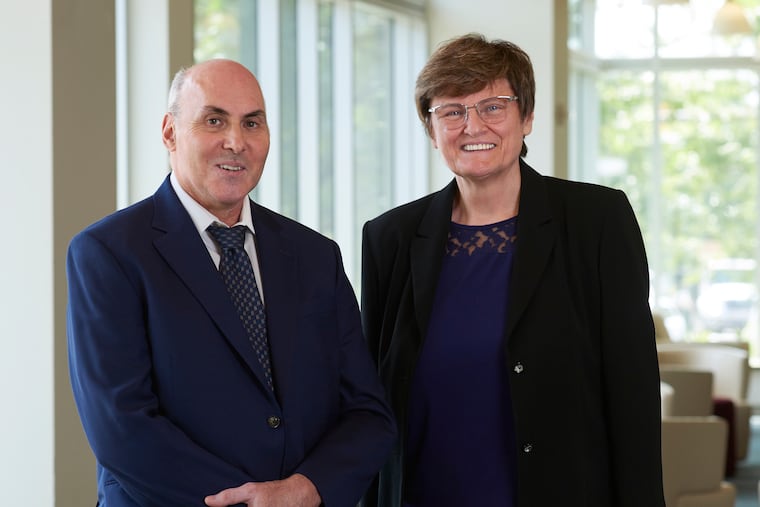Penn RNA scientists win Philly’s Scott award for research used in COVID-19 vaccines
Katalin Karikó and Drew Weissman have won more than a dozen honors for their research.

Chalk up another award for the University of Pennsylvania scientists whose research paved the way for the RNA-based COVID-19 vaccines — and this time the honor comes from their own backyard.
Katalin Karikó and Drew Weissman are winning Philadelphia’s 2021 John Scott Award, organizers announced Thursday.
The annual award, named for the 19th-century chemist who endowed it in honor of Ben Franklin, comes with a prize of $10,000 each.
Between the two of them, Karikó and Weissman have won more than a dozen honors for their discoveries involving the “messenger” variety of RNA, the first of which was published in 2005. In two of the COVID vaccines, these genetic instructions are used to expose people to a harmless fragment of the coronavirus, allowing their immune systems to practice in the event of an infection.
Those vaccines, the one from Moderna and the joint effort from Pfizer and BioNTech, where Karikó now works, are credited with saving many thousands of lives.
The Scott Awards are administered by the Board of Directors of City Trusts, a group that manages dozens of charitable trusts for which the city of Philadelphia has been named as trustee. They will be presented Nov. 18 at the American Philosophical Society.
“Dr. Karikó and Dr. Weissman’s research led to the development of mRNA vaccines that are literally rescuing the world from the devastation of the COVID pandemic,” said attorney Bernard W. Smalley Sr., the board president.
Earlier in September, the pair were announced as winners of a $3 million Breakthrough Prize and a $250,000 Lasker Award.
At the Scott Award ceremony in November, organizers also are recognizing the winners of the 2020 awards, as last year’s event was canceled due to the pandemic.
They are: Jean Bennett, a Penn ophthalmology professor who helped develop gene therapy to treat certain forms of blindness; William DeGrado, a professor of pharmaceutical chemistry at the University of California, San Francisco, who studies protein fragments called peptides for use as antimicrobial drugs; and Michael Klein, a Temple University professor who develops computer algorithms used to create similar drugs.